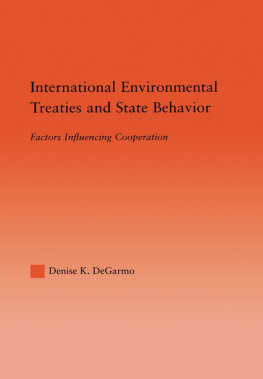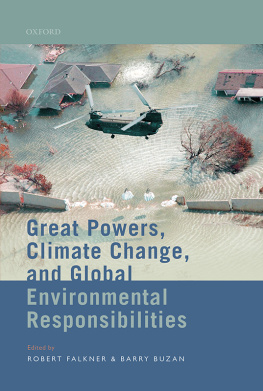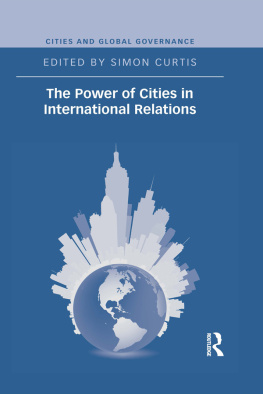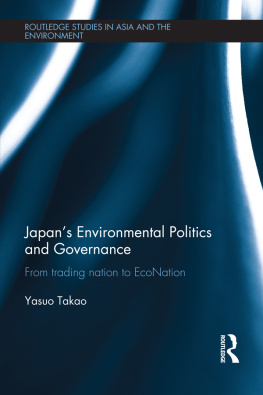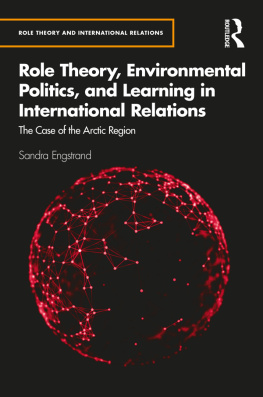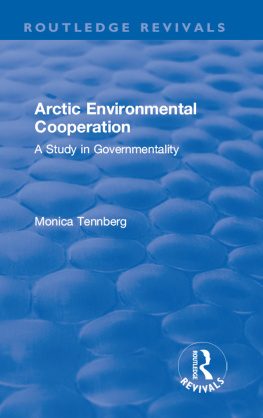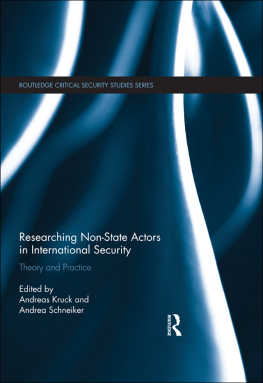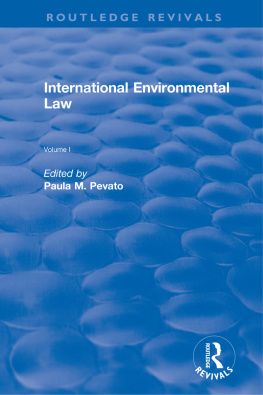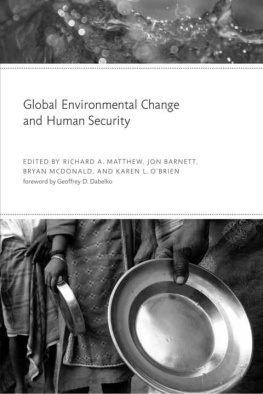STUDIES IN INTERNATIONAL RELATIONS
Edited by
Charles MacDonald
Florida International University
A ROUTLEDGE SERIES
STUDIES IN INTERNATIONAL RELATIONS
CHARLES MACDONALD, General Editor
PROMOTING WOMEN'S RIGHTS
The Politics of Gender in the European Union
Chrystalla A. Ellina
TURKISH FOREIGN POLICY AND TURKISH IDENTITY
A Constructivist Approach
Ycel Bozdaglioglu
ORGANIZING THE WORLD
The United States and Regional Cooperation in Asia and Europe
Galia Press-Barnathan
HUMAN RIGHTS IN CUBA, EL SALVADOR AND NICARAGUA
A Sociological Perspective on Human Rights Abuse
Mayra Gomez
NEGOTIATING THE ARCTIC
The Construction of an International Region
E.C.H. Keskitalo
THE COMMON FISHERIES POLICY IN THE EUROPEAN UNION
A Study in Integrative and Distributive Bargaining
Eugenia da Conceio-Heldt
MALAYSIA AND THE DEVELOPMENT PROCESS
Globalization Knowledge Transfers and Postcolonial Dilemmas
Vanessa C. M. Chio
INTERNATIONAL ENVIRONMENTAL TREATIES AND STATE BEHAVIOR
Factors Influencing Cooperation
Denise K. DeGarmo
Routledge
New York & London
Published in 2005 by
Routledge
270 Madison Avenue
New York, NY 10016
www.routledge-ny.com
Published in Great Britain by
Routledge
2 Park Square
Milton Park, Abingdon
Oxon OX14 4RN
www.routledge.co.uk
Copyright 2005 by Taylor & Francis Group, a Division of T&F Informa.
Routledge is an imprint of the Taylor & Francis Group.
Printed in the United States of America on acid-free paper.
All rights reserved. No part of this book may be reprinted or reproduced or utilized in any form or by any electronic, mechanical, or other means, now known or hereafter invented, including photocopying and recording, or in any information storage or retrieval system, without permission in writing from the publishers.
10 9 8 7 6 5 4 3 2
Library of Congress Cataloging-in-Publication Data
DeGarmo, Denise K., 1956-
International environmental treaties and state behavior : factors influencing cooperation / Denise K. DeGarmo.
p. cm. (Studies in international relations)
Includes bibliographical references and index.
ISBN 0-415-97181-0 (hardback : alk. paper)
1. Environmental policyInternational cooperation. I. Title. II. Studies in international relations (Routledge (Firm))
| GE170.D445 2004 |
| 363.70526dc22 | 2004018123 |
In loving memory of
Harold K. Jacobson
Industrialism is the systematic exploitation of wasting assets. In all too many cases, the thing we call progress is merely an acceleration in the rate of that exploitation. Such prosperity as we have known up to the present is the consequence of rapidly spending the planet's irreplaceable capital.
Sooner or later mankind will be forced by the pressure of circumstances to take concerted action against its own destructive and suicidal tendencies. The longer such action is postponed, the worse it will be for all concerned Overpopulation and erosion constitute a Martian invasion of the planet Treat Nature aggressively, with greed and violence and incomprehension: wounded Nature will turn and destroy you if presumptuously imagining that we can conquer Nature, we continue to live on our planet like a swarm of destructive parasites-we condemn ourselves and our children to misery and deepening squalor and the despair that finds expression in the frenzies of collective violence.
Aldous Huxley (1948) Managing The Double Crises
Contents
Chapter One
International Environmental Problems and International Environmental Politics: An Overview
Chapter Two
International Relations Theory and International Environmental Politics: Epistemological Issues and Existing Approaches
Chapter Three
The History of International Environmentalism
Chapter Four
Determinants of State Behavior in the International Environment: Becoming a Party to International Environmental Treaties
Chapter Five
Becoming a Party to International Environmental Treaties: An Analysis
Chapter Six
Becoming a Party to International Environmental Treaties: Case Studies
Chapter Seven
Conclusions
Nation-State Data: Year of Entry into
International System, Year in Which Population
Reaches 1 Million, and Years Included in
This Study |
I would like to dedicate this work to the memory of Professor Harold K. Jacobson. Professor Jacobson's dedication to graduate and undergraduate education inspired me to become the scholar I am today. His intellectual support allowed me to explore the depths of my intellectual curiosity while his emotional support helped me to develop confidence in my scholarship. Without his guidance, I could not have successfully completed this project. His final insights into this project were sorely missed. I also wish to thank Professor Paul Huth for his patience, encouragement, and willingness to challenge me intellectually. I would like to thank Professor Douglas Lemke for jumping in at the last minute to ensure this project would be completed on time and Professor Steven Brechin for his willingness to take on this project. A special thank you is extended to Professor Richard L. Hall for his wisdom, emotional support and valued friendship. On a more personal level, I wish to thank Jose Raul Perales-Hernandez for his friendship, willingness to engage in countless hours of conversation, and for reminding me there was a light at the end of the tunnel. I would also like to thank Lili Kivisto and Rene Lewis for their encouragement and prayers. My deepest gratitude, however, goes out to my sons who have sacrificed so much in order for me to pursue my educational dreams. Their unconditional love and support has inspired me in ways that words cannot describe.
In the dust where we have buried the silent races and their abominations, we have buried so much of the delicate magic of life.
D.H. Lawrence (at Taos)
The purpose of this chapter is to provide the reader with an introduction to international environmental problems and politics. The chapter is divided into four sections. The first section is devoted to a discussion of international environmental problems and their influence on state behavior in the international system. The second section examines international environmental cooperation, while the third section looks at international environmental politics. Finally, section four provides an overview of the organization of this book.
INTERNATIONAL EVIRONMENTAL PROBLEMS
Environmental Interdependence
While environmental issues have always been an important part of international relations, not until the United Nations Stockholm Conference on the Human Environment in 1972 were growing international concerns regarding the impact of environmental degradation on the human population and the international ramifications of the depletion of finite resources first voiced. As a result of the

